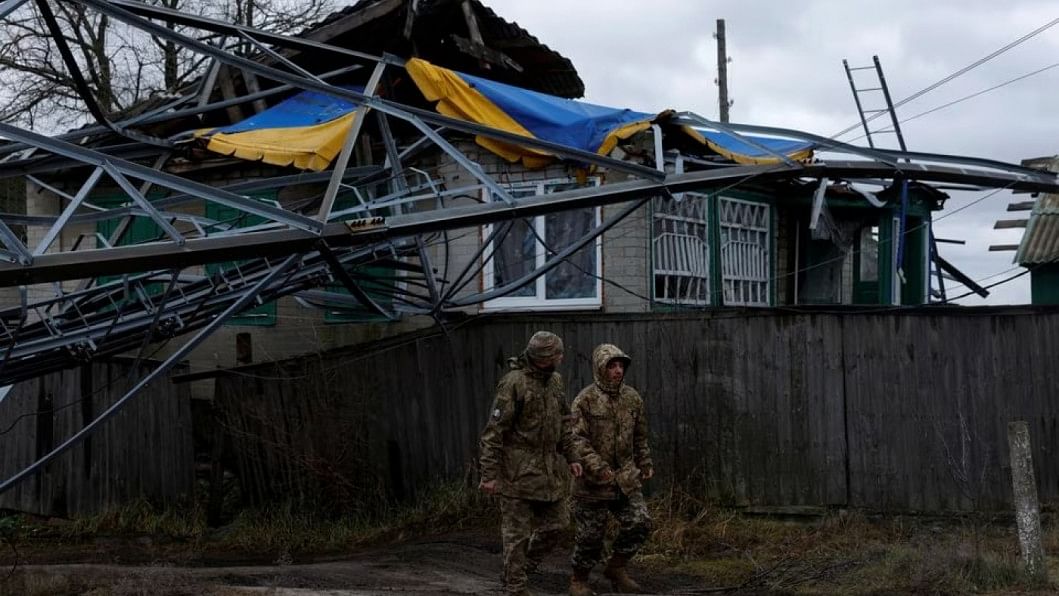What Ukraine needs to learn from Afghanistan

The greatest enemy of economic development is war. If the world slips further into global conflict, our economic hopes and our very survival could go up in flames. The Bulletin of Atomic Scientists recently moved the hands of the Doomsday Clock to a mere 90 seconds to midnight.
The world's biggest economic loser in 2022 was Ukraine, whose economy collapsed by 35 percent, according to the International Monetary Fund (IMF). The war in Ukraine could end soon, and economic recovery could begin, but this depends on Ukraine understanding its predicament as the victim of a US-Russia proxy war that broke out in 2014.
Unless the proxy war ends soon, Ukraine faces a dire future. Ukraine needs to learn from the horrible experience of Afghanistan to avoid becoming a long-term disaster. It could also look to the US proxy wars in Vietnam, Cambodia, Lao PDR, Iraq, Syria, and Libya.
Starting in 1979, the US armed the Mujahideen (Islamist fighters) to harass the Soviet-backed government in Afghanistan. As President Jimmy Carter's national security advisor Zbigniew Brzezinski later explained, the US objective was to provoke the Soviet Union to intervene, in order to trap it in a costly war. The fact that Afghanistan would be collateral damage was of no concern to US leaders.
The Soviet military entered Afghanistan in 1979 (as the US had hoped), and fought through the 1980s. Meanwhile, the US-backed fighters established al-Qaeda in the 1980s, and the Taliban in the early 1990s. In 2001, the US invaded Afghanistan to fight al-Qaeda and the Taliban. This war continued for another 20 years, until the US finally left in 2021.
Afghanistan today lies in ruins. While the US wasted more than $2 trillion of its military outlays, Afghanistan is impoverished. Its 2021 GDP was below $400 per person.
The proxy war in Ukraine began nine years ago when the US government backed the overthrow of Ukraine's then President Viktor Yanukovych. Yanukovych's sin, from the US viewpoint, was his attempt to maintain Ukraine's neutrality despite the US' desire to expand Nato to include Ukraine (and Georgia). The US' objective was for Nato countries to encircle Russia in the Black Sea region. The US has been massively arming and funding Ukraine since 2014.
But two harsh political realities of Ukraine were overlooked by the US. The first is that Ukraine is deeply divided ethnically and politically between Russia-hating nationalists in Western Ukraine and ethnic Russians in eastern Ukraine and Crimea. The second is that Nato expansion to Ukraine crosses a Russian redline. Russia will fight to the end, and escalate as necessary, to prevent the US from incorporating Ukraine into Nato.
At the end of 2021, Russian President Vladimir Putin put forward three demands to the US: Ukraine should remain neutral and out of Nato; Crimea should remain part of Russia; and the Donbas should become autonomous in accord with the Minsk II Agreement.
The Biden-Sullivan-Nuland team rejected negotiations over Nato enlargement, eight years after the same group backed Yanukovych's overthrow.
In March 2022, Ukraine's President Volodymyr Zelensky seemed to understand his country's dire predicament as a victim of a US-Russia proxy war. He declared publicly that Ukraine would become a neutral country, and asked for security guarantees. He also publicly recognised that Crimea and Donbas would need some kind of special treatment. Yet, the US blocked the peace process.
The basis for peace today is clear. Ukraine would be a neutral non-Nato country. Crimea would remain home to Russia's Black Sea naval fleet, as it has been since 1783. A practical solution would be found for the Donbas (such as a territorial division, autonomy, or an armistice line). Most importantly, the fighting would stop, Russian troops would leave Ukraine, and Ukraine's sovereignty would be guaranteed by the UN Security Council and other nations.
Above all, the government and people of Ukraine would tell Russia and the US that Ukraine refuses any longer to be the battleground of a proxy war. In the face of deep internal divisions, Ukrainians on both sides of the ethnic divide would strive for peace, rather than believing that an outside power will spare them the need to compromise.
Jeffrey D Sachs is a world-renowned economist, academic, and public policy analyst who serves as the director of the Center for Sustainable Development at Columbia University.

 For all latest news, follow The Daily Star's Google News channel.
For all latest news, follow The Daily Star's Google News channel. 











Comments